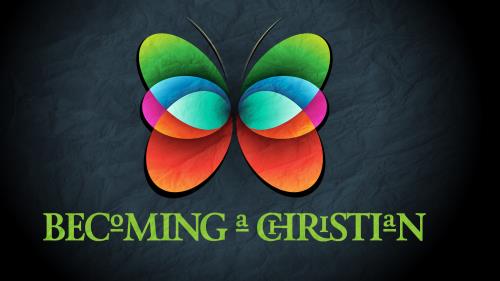-
Spiritual Cleansing
Contributed by W Pittendreigh on Nov 28, 2017 (message contributor)
Summary: An Ash Wednesday.
Spiritual Cleansing
Delivered on Ash Wednesday, 2005
By
The Rev. Dr. W. Maynard Pittendreigh
Senior Pastor
Mpittendreigh@goodshepherdpc.org
I John 1:5-9
5 This is the message we have heard from him and declare to you: God is light; in him there is no darkness at all.
6 If we claim to have fellowship with him yet walk in the darkness, we lie and do not live by the truth.
7 But if we walk in the light, as he is in the light, we have fellowship with one another, and the blood of Jesus, his Son, purifies us from all sin.
8 If we claim to be without sin, we deceive ourselves and the truth is not in us.
9 If we confess our sins, he is faithful and just and will forgive us our sins and purify us from all unrighteousness. (NIV)
I am glad to be back in this pulpit! I know I missed only one Sunday, but it felt to me that I was gone for months!
While I am glad to be back, I am very grateful to Mission India for the opportunity they gave me to join them on the trip. I fell in love with the people of that country and I came back with a real passion for the work of Christ in India.
People ask me how my trip was, and it is so hard to answer that. There were so many experiences, it becomes difficult to share in a few brief words what that trip meant to me.
But I want to tell you about one experience as it relates to tonight’s Ash Wednesday theme. Those of you who kept up with the online journal I wrote on the Internet will be familiar with part of this story, but I want to share it with everyone tonight.
One of the places we visited was the city of Varanasi, which is regarded by the Hindu as the holiest place on earth.
Here people will gather at the Ganges River at sunrise and will step into the water as a ceremonial cleansing of their sins.
I know that sounds like a baptism, but it is not. It’s nothing like a baptism.
The water is filthy.
You can’t see beyond the surface of the water.
While we were there, we saw a dead cow float by in the river.
There are two large crematoriums there and over 100 people are cremated every day at this place, and their ashes are shoveled into the Ganges – people think it is a holy place for their remains to be deposited.
And in the midst of this filth, people dive into the waters for a spiritual cleansing.
It is such a sad place.
Because the people have a sense of truth. They know they have sinned and they know they need to be spiritually cleansed.
But it so sad because what they are doing is useless.
The waters of the Ganges don’t clean your spirit.
The waters of the Ganges don’t clean anything! The waters are so filthy.
Now, tonight is Ash Wednesday, and this is the beginning of Lent. Lent is the season of reflection when we try to cleanse ourselves from sin.
We are trying to do the very same thing that the Hindus try to do by bathing in the polluted waters of the Ganges.
We are trying to cleanse ourselves of sins.
Now as Christians, we really ought to be trying to do this all the time, but Lent gives us the opportunity to really focus on this spiritual cleansing.
But we don’t want to be like the Hindus diving into the Ganges River. We don’t want to waste our time.
We want to do it right.
So how do you cleanse yourself spiritually?
And do it in an effective way?
Tonight, I want us to look at Scripture and think about four things we can do to cleanse ourselves spiritually.
These are four things we ought to be doing all the time, but especially during Lent, I hope you will take these four steps with you daily.
There are 40 days in Lent, not counting the Sundays. Each day you should consider these 4 steps.
These steps are outlined in your bulletin, and the first one is Self Examination.
1. Self-examination
We read in the Old Testament book of Lamentations, (Lam 3:40), “Let us examine our ways and test them, and let us return to the LORD.”
It is easier for most of us to examine other people, than to examine ourselves.
We look at someone else and we can easily see all their faults.
That person is a racist.
This person is a selfish.
But to look in the mirror and see ourselves takes courage and skill. To examine ourselves and to see our own faults is often a difficult thing to do.

 Sermon Central
Sermon Central



